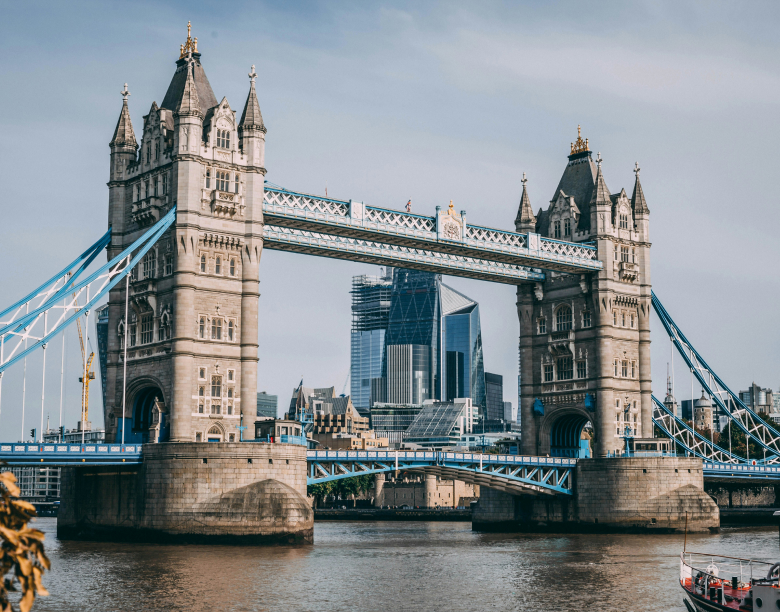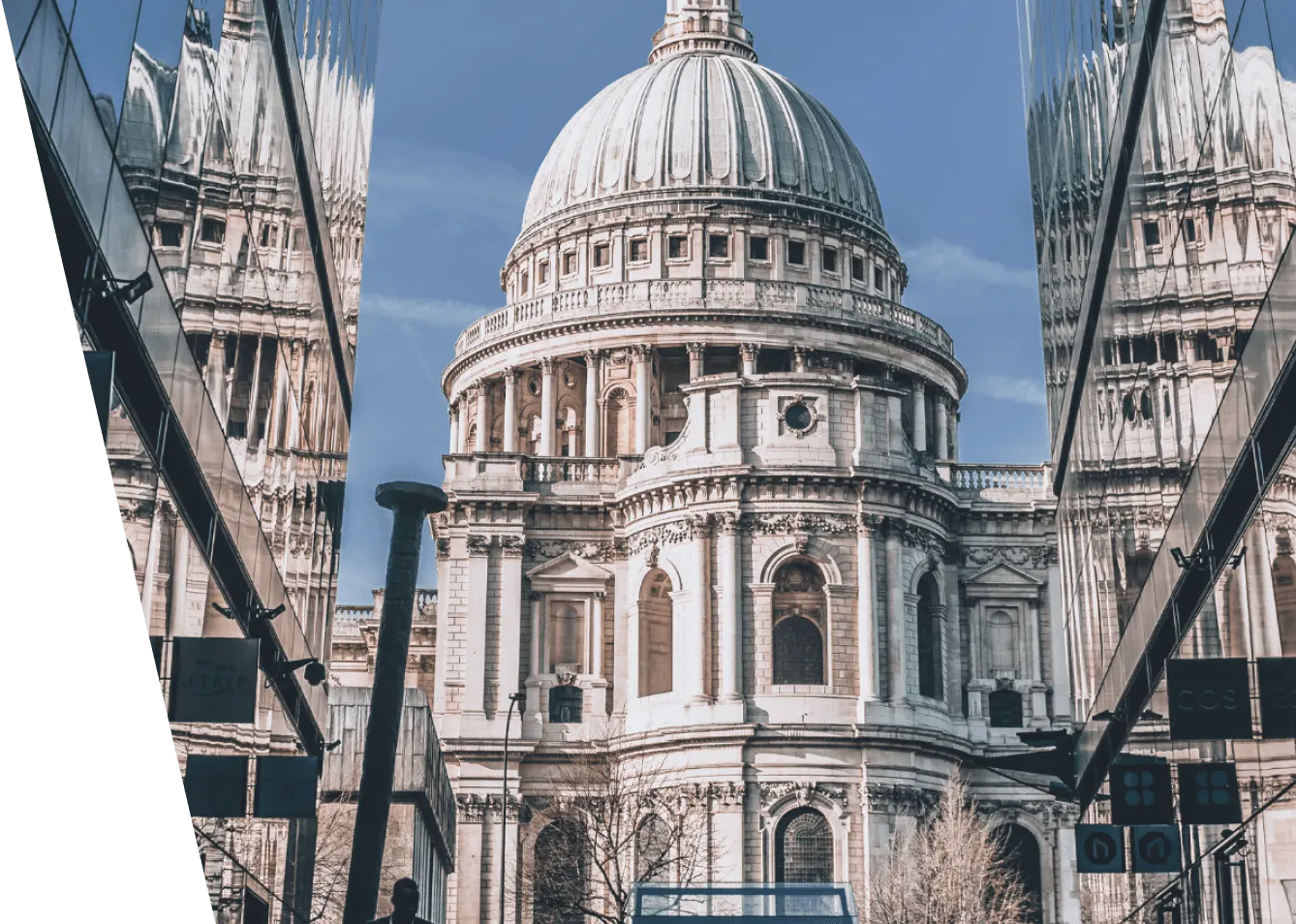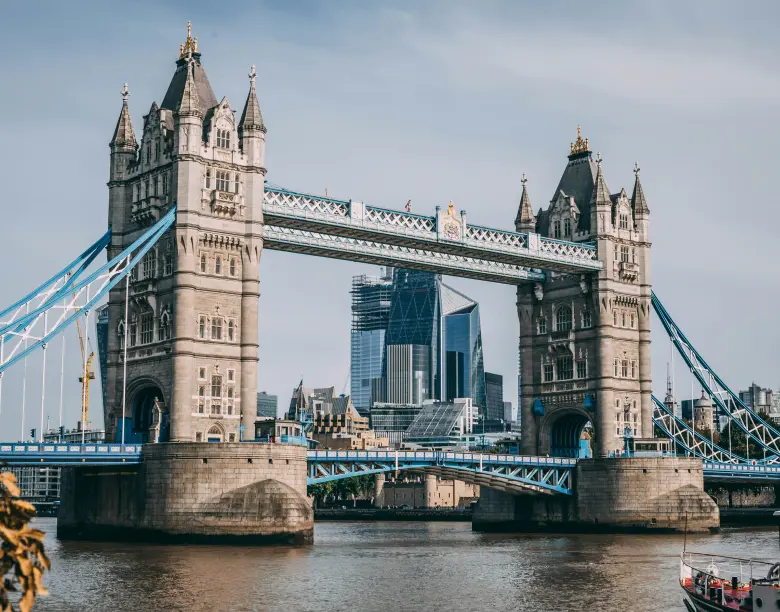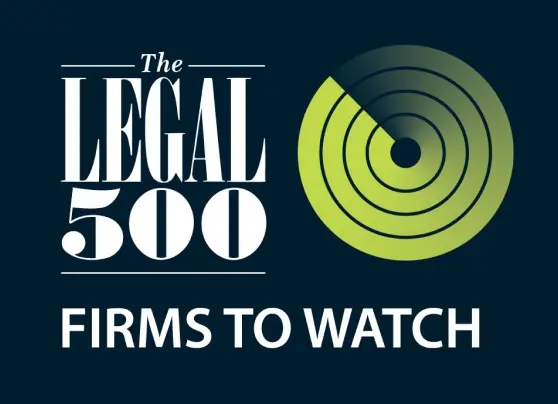Introduction
For many employers in the UK, the notion of Home Office compliance visits can create a palpable sense of concern. Your Sponsor Licence is a valuable asset that allows your business to tap into global talent pools, enabling growth that wouldn’t be possible before.
The Home Office conducts visits to both businesses before and after the issuance of their sponsor licence. These are carried out by UKVI to ensure employers meet their sponsorship obligations (such as record keeping, reporting and monitoring).
At Rove Legal, we’ve guided many clients through this complex process, and we understand the high stakes involved.
In this comprehensive guide, we’ll discuss how you can fully prepare for Home Office compliance visits and provide you with actionable strategies that will help you prepare your team for various scenarios.
If the situation is urgent, then we’d advise you to contact us today so we can better help you!
Why does the Home Office conduct compliance visits?
As the Home Office stepping up its efforts to tackle illegal immigration, compliance visits have become more frequent and common in recent months and years. The purpose of these visits are to ensure there is a on-the-ground verification mechanism where employer’s adherence to sponsor licence compliance is monitored.
Many firms and individuals try to use loopholes to jump the immigration queue and find an easier way to immigrate in the UK or hire foreign nationals. However these practices run the risk of hefty fines and loss of your licence!
Legal & Business Implications for Non-Compliance
The legal ramifications for failing a Home Office compliance visit can be severe and far-reaching. Penalties can range from downgrading your Sponsor Licence to outright suspension or revocation. Businesses found to be in violation may also face substantial fines, and directors could face criminal charges in the worst-case scenarios. Furthermore, the court is generally unsympathetic to businesses that have not adhered to compliance rules, often reinforcing that holding a Sponsor Licence is a privilege rather than a right.
Apart from the legal implications, your business reputation is at stake. A downgrade or revocation of Sponsor Licence can become public knowledge, leading to negative publicity.
In addition, relying on the UK’s available pool of talent is ever more challenging for businesses in various sectors due to staff shortages across various parts of the economy. Means, your future growth might get hindered by the result of this visit.
When the Home Office conducts compliance visits
Compliance visits can be unpredictable. They may be scheduled or occur without notice, often triggered by tips of non-compliance or as follow-ups to businesses currently under a B-rated sponsor licence action plan. Understanding the unpredictable nature of these visits underscores the necessity for continual compliance readiness.
In most cases, however, Home Office conducts such visits when they receive tips and intelligence about potentially non-compliance businesses or
In scenarios where a business has a B rating and is subject to a Home Office action plan.
In some cases, other units within the Home Office may wish to conduct an investigation and include the sponsor licence compliance department in their case.
How long a compliance visit typically takes
This shouldn’t take more than 2-3 hours to complete. However, various factors such as the number of sponsored staff, size of the business and the reason behind the vist (pre or post application) could influence the time it takes to conduct such visits. Larger firms could expect visits lasting more than 5 hours in some cases.
Announced vs. Unannounced Visits
In some instances, the Home Office may inform you in advance about an impending compliance visit. While this gives you some time to prepare, don’t mistake it for leniency. The officials will still be conducting a thorough inspection.
While in other situations, which is becoming more and more common, UKVI may choose to conduct a surprise visit without any prior warning. This is where many businesses are caught off guard and prior preparation would only be an option if compliance was at the front of centre of their strategy.
Pre-licence Visits
When you first apply for a Sponsor Licence, you might be subject to a pre-licence visit from the Home Office. This visit serves as a preliminary check to ensure your business meets all the necessary criteria for obtaining a Sponsor Licence. It’s a vital step in the application process and typically includes:
- An inspection of your premises
- An overview of your recruitment practices and HR system capabilities. You’ll need to demonstrate you have the means and knowledge to comply with your licence duties/
- An audit of your record-keeping systems.
- Wether or not your business will employ skilled migrants at the skill level required for their COS (certificate of sponsorship)
Failure at this stage could mean your application is rejected, so make sure you pre-planed and are well-prepared for such visits. If you’re interested in mock audits and Home Office inspection training, book a call with us here.
Follow-up Visits Post-Licence
Once your Sponsor Licence is approved, the Home Office may conduct follow-up visits to ensure ongoing compliance. Unlike pre-licence visits, these can occur at any time during the validity of your Sponsor Licence. The scope of these visits could include:
- To ensure your sponsor employees are at the jobs in which they were sponsored and carrying out duties according to their occupational classification code mentioned in their COS.
- You have a genuine business and is currently trading
- You have the right HR systems and procedures to satisfy your compliance duties
I received a notice of a sponsor compliance visit; what should I do?
If you receive notification of a sponsor compliance visit, you’ll need to ensure you have gone through the following quickly and efficiently:
1- Make sure your internal compliance team is present during the visit day. If some key personnel aren’t present, you may be able to change the date, and if that’s approved, make sure to use the additional time to fully prepare all staff and documentation.
2-If your internal compliance team isn’t clear about their roles and duties, make sure to bring them up to speed. We have a section on this to help you further.
3- Prepare all documents that might be requested during the interview (see the list below) and ensure all is right to work & ID checks on sponsored employees were done correctly and you have records of these periodic checks as per the terms of your sponsorship.
4- Make sure you have access to all documents either electronically or physically. In case you have multiple offices and certain documents are held elsewhere, ensure they will be on the premises on the day of the visit.
Documentation you should have at the ready
Basic Documentation
- Tax returns or utility bills.
- Copies of sponsored employees’ passports and visas.
- Employment contracts for sponsored employees.
Additional Records
- Current and past contact details for all migrant workers.
- Evidence of the Resident Labour Market Test (RLMT), where applicable.
- Records of employee attendance and salary payment proofs.
Organisational Processes
- Details of your recruitment process.
- Record-keeping processes, including how you store and secure sensitive information.
Forming Your Internal Compliance Team
Due to the complexity of sponsor compliance, it’s always a good practice to have an internal compliance team as oppose of having a just compliance office. The inclusion of cross-functional members like HR professionals, legal advisors, and managers ensures that all aspects of compliance are covered. Typically, your team should have representatives from:
- Human Resources
- Legal Department (you could rely on Rove Legal for this)
- Management & Operations
Some businesses may not have the resources, and one person may carry out various duties. In that case, make sure they are well-versed in their role and responsibilities.
Each team member will have specific roles and responsibilities, such as document management, training, and liaison with external bodies, like legal advisors or the Home Office itself.

Role of HR in Preparing for a Visit
Human Resources are often tasked with maintaining accurate records of sponsored employees conducting and recording periodic checks to oversee the employment status of sponsored workers. This is where UKVI often scrutinise the most during a compliance visit.
Some of the crucial tasks HR must undertake include:
- Record-keeping: Maintain up-to-date records of all sponsored employees, including their contact details, job roles, and attendance records.
- Training: Equip staff with the necessary knowledge to respond effectively during a Home Office visit.
- Internal Audits: Regular internal audits can help identify potential areas of non-compliance before they become problematic.
What Happens During the Visit
Upon arrival, Home Office officials will identify themselves and present their credentials. They may ask to speak to the person responsible for compliance or your Level 1 user on the Sponsor Management System (SMS).
Initial Overview
The visiting officials typically begin by giving an overview of the purpose of their visit and what they intend to inspect.
Document Review
One of the main activities during a compliance visit is a review of the documentation you’ve prepared. This may include, but is not limited to, HR records, payroll documentation, and evidence of right-to-work checks.
Interviews
In some cases, interviews with sponsored employees or members of your HR team may also be conducted. These interviews can sometimes be unscheduled and may include questions about the specifics of the sponsored employees’ roles, among other things.
Types of Questions That May Be Asked
To Employers
- How do you ensure that your sponsored employees have the necessary qualifications for their roles?
- Can you walk us through your process for conducting right-to-work checks?
- How do you track and record employee attendance?
To Sponsored Employees
- What are your main job responsibilities?
- Can you confirm your current salary?
- Are you aware of the terms of your visa and Sponsor Licence?
What Home Office May Look For, Including in Staff Interviews
Verification of Information
Officials will seek to verify that the information you’ve provided on your Sponsor Licence application and via the SMS aligns with the actual working conditions and roles of your sponsored employees.
Compliance with Immigration Rules
They’ll also be keen to ascertain whether you’re in full compliance with UK immigration laws, including right-to-work checks and Resident Labour Market Testing (RLMT), where applicable.
Staff Awareness
During interviews, one thing they may assess is whether sponsored employees are aware of the terms under which they were hired, including their visa type and any associated restrictions. The responses can indicate whether your firm is providing adequate communication and guidance to its staff regarding immigration compliance.
Being prepared and knowing what to expect can go a long way in making a Home Office compliance visit less intimidating. Not only will you be in a better position to successfully navigate the visit, but you’ll also be able to demonstrate that your organisation takes its compliance responsibilities seriously.
Post-Visit Scenarios
Potential Outcomes: Downgrade, Suspension, Revocation
Downgrade
In case of minor discrepancies or issues that are not of a grave nature, your Sponsor Licence may be downgraded. This generally means that you won’t be able to sponsor new employees until the identified issues are resolved and the Home Office is satisfied with your new compliance measures.
Suspension
Where significant breaches are found, the Home Office may suspend your Sponsor Licence. During the suspension period, your ability to sponsor new visas or renew existing ones is put on hold, pending further investigation or provision of additional documentation.
Revocation
The most severe outcome is the revocation of your Sponsor Licence. This typically occurs in cases of major non-compliance or illegal activity. If your licence is revoked, you’ll be unable to sponsor any employees, and existing sponsorships are likely to be terminated.
Civil penalties, including fines, can be levied against your organisation. In extreme cases involving illegal working, criminal charges may also be brought against company directors or individuals responsible for compliance failures.
Handling Follow-up Communication with the Home Office
Timing
You may receive initial feedback immediately following the visit, but a formal report outlining the findings and next steps is usually sent within a few weeks.
Rectifying Issues
If the Home Office has identified issues that need to be addressed, a deadline for rectification will generally be provided. It’s crucial to adhere to these deadlines and maintain open communication with the Home Office throughout this period.
Legal Advice
Given the complexities involved and the potential for severe penalties, it’s strongly advisable to consult with immigration law experts when responding to the Home Office’s findings.
By understanding the post-visit scenarios and being prepared for different outcomes, you can better position your organisation to respond effectively and maintain your compliance status. Remember, the aim isn’t just to ‘get through’ a Home Office visit but to continually uphold the integrity of the UK’s immigration system—a responsibility that holds both legal and ethical dimensions.
Appeal Process and Legal Recourse
The outcome of a Home Office compliance visit may not always be in your favour, but it doesn’t have to be the end of the road. Understanding the appeal process and your options for legal recourse can be crucial for safeguarding your Sponsor Licence and the wellbeing of your organisation.
How to Appeal a Negative Outcome
If you disagree with the decision made by the Home Office, it’s crucial to act swiftly. The Home Office typically provides a limited window for lodging an appeal and providing additional evidence (e.g ersonnel records, correspondence and procedural documentation) to overturn the decision. The appeal could take anywhere from a few weeks to a few months depending on the complexity of the case.
To submit an appeal you may require to submit additional evidence and legal arguments to support your case. It’s best to seek legal advise before doing since you have pretty much one shot at this!
If the appeal proceeds to a hearing both parties will present their cases. The ultimate decision may take some time to be communicated after the hearing.
Administrative Review
An alternative to a full appeal is requesting an administrative review, where the original decision is reviewed internally by the Home Office. This can be quicker but doesn’t allow for as much additional evidence to be submitted.
Benefits of Routine Internal Audits
Identifying Weak Points
Regular internal audits can help you identify potential areas of weakness in your compliance procedures before they become an issue during a Home Office visit.
Continuous Improvement
Routine audits enable an ongoing process of improvement, allowing you to fine-tune your procedures and policies, thereby ensuring that they are always in line with Home Office requirements.
Reduced Anxiety
Knowing that your internal processes are up to scratch can significantly reduce the anxiety associated with the possibility of a Home Office visit, allowing you to focus on your core business operations.
Importance of Staying Updated with Immigration Law Changes
Regulatory Changes
Immigration laws and regulations can change frequently, especially in the current political climate. Keeping abreast of these changes is essential for maintaining compliance.
Policy Updates
The Home Office may update its policy guidelines without much notice. Regularly checking official websites and subscribing to legal bulletins can help you stay updated.
Risk Mitigation
Understanding the latest changes and implementing them in your procedures can help mitigate the risk of falling foul of new regulations during a compliance visit.
Training Staff and Management for Compliance
Employee Education
A well-informed staff is your first line of defence against compliance issues. Regular training sessions can equip your employees with the knowledge they need to ensure full compliance.
Management Training
Management plays a crucial role in overseeing compliance. Specialised training for HR managers and other key personnel can ensure that compliance is embedded in your organisational culture.
Record-Keeping
Training should also include best practices for documentation and record-keeping, as these are often key focus areas during a Home Office visit.
The Home Office has provided guidance in the Workers, Temporary Workers and Students: Guidance for Sponsors Appendix D: Keeping Documents – Guidance for Sponsors, which outlines the reporting and record-keeping requirements for sponsor licence holders. It is essential that your key personnel are thoroughly familiar with these responsibilities.
By adopting a proactive approach to Sponsor Licence compliance, you can improve your readiness for Home Office visits, reduce the risk of adverse actions, and ensure smoother business operations.
Key Takeaways and Actionable Steps
Navigating the intricacies of Home Office compliance visits is a multifaceted challenge. Still, adequate preparation and an understanding of the processes involved can greatly minimise your organisation’s risk. This section summarises the vital points discussed in the blog and provides a roadmap for ensuring ongoing compliance.
Summary of Vital Points
- Home Office Visits are Inevitable: Whether announced or unannounced, these visits are a part of employing non-UK nationals.
- Legal Consequences: Non-compliance can lead to severe repercussions, including the revocation of your Sponsor Licence.
- Role of HR: Human Resources plays a pivotal role in preparing for and navigating through Home Office visits.
- Documentation: Comprehensive and up-to-date records are essential for showcasing your compliance during an audit.
- Common Pitfalls: Understanding common mistakes can help you avoid them.
- Legal Recourse: There are avenues for appeal if you disagree with the outcomes of a Home Office visit.
- Proactive Approach: Being proactive in maintaining compliance can mitigate risks and reduce stress.
A Checklist for Ongoing Compliance
- Conduct frequent internal checks to identify potential areas of weakness.
- Keep up with the latest immigration laws and Home Office policies.
- Organise regular training sessions for staff and management on compliance.
- Maintain a rigorous system for keeping records up-to-date.
- Don’t hesitate to seek legal advice for complex compliance issues.
Recommended Next Steps for Sponsor Licence Holders
- Conduct an Internal Audit: If you haven’t already, schedule an internal audit to assess your current compliance status.
- Update Training Modules: Revise your staff training programs to include the latest Home Office requirements.
- Review Documentation: Double-check your record-keeping processes and ensure all documents are current and readily accessible.
- Seek Legal Counsel: Consult with immigration law experts to ensure you’re interpreting regulations correctly and making the appropriate preparations for a Home Office visit.
By following these key takeaways and actionable steps, Sponsor Licence holders can go a long way in ensuring that they are well-prepared for any Home Office compliance visits. This not only helps in navigating the immediate concerns of an audit but also contributes to building a culture of ongoing compliance within the organisation.
Frequently Asked Questions
Do Home Office compliance visits always come unannounced?
No, Home Office visits can either be announced or unannounced, depending on the situation.
What documents should be readily available during a Home Office compliance visit?
Important documents include employment contracts, payslips, attendance records, and evidence of Resident Labour Market Tests, among others.
How often do Home Office compliance visits occur?
There’s no fixed frequency for compliance visits, but all Sponsor Licence holders should be prepared for a visit at any time.
What happens if my Sponsor Licence is suspended or revoked?
A suspension or revocation can have severe repercussions, including legal actions and the inability to hire non-UK nationals in the future.
Can I appeal a negative decision from the Home Office?
Yes, there are appeal processes in place, although it’s best to consult with an immigration law expert for the specific steps involved.
Is there any way to prepare my staff for Home Office compliance visits?
Regular training and briefings can prepare your staff for the types of questions they may be asked during a Home Office visit.











